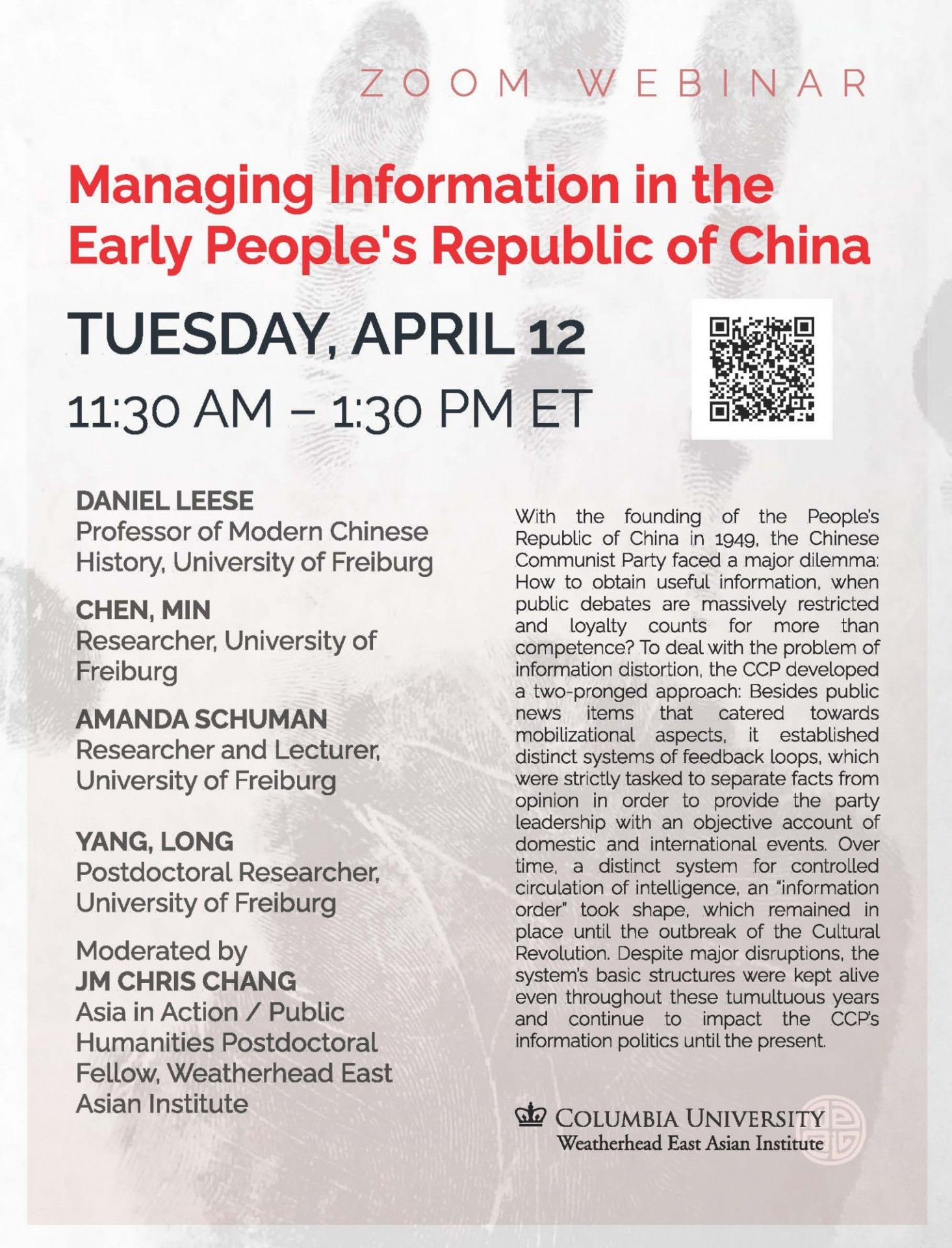Event description:
With the founding of the People’s Republic of China in 1949, the Chinese Communist Party faced a major dilemma: How to obtain useful information, when public debates are massively restricted and loyalty counts for more than competence? To deal with the problem of information distortion, the CCP developed a two-pronged approach: Besides public news items that catered towards mobilizational aspects, it established distinct systems of feedback loops, which were strictly tasked to separate facts from opinion in order to provide the party leadership with an objective account of domestic and international events. Over time, a distinct system for controlled circulation of intelligence, an “information order”, took shape, which remained in place until the outbreak of the Cultural Revolution. Despite major disruptions, the system’s basic structures were kept alive even throughout these tumultuous years and continue to impact the CCP’s information politics until the present.
Moderated by JM Chris Chang, Asia in Action / Public Humanities Postdoctoral Fellow
Panelists:
- Daniel Leese, Professor of Modern Chinese History, University of Freiburg
- CHEN Min, Researcher, University of Freiburg
- Amanda Shuman, Researcher and Lecturer, University of Freiburg
- YANG Long, Postdoctoral Researcher, University of Freiburg
This event is the first in a four-part series for WEAI's Asia in Action workshop series, "Remapping the Archives: New Histories of the PRC."
Series description:
In the present moment, intensifying historical censorship in China–compounded by the lasting impacts of the pandemic–has severed access to the archive as we once knew it. The Modern China field has been forced to reckon with the possibility that access to PRC sources may soon become exceptional, and that its foreclosure portends a post-archival future. What is history without archive, or archive without history? The purpose of this four-part series is to explore promising responses by several scholars to this crisis in the archive, both as a means of illuminating new methodological directions in PRC history as well as reexamining perennial historical questions from a new aspect.
The subsequent events are:
Wed. April 20 / 12:00 – 1:30pm
Notes from the Home Front: One Woman’s Chinese Revolution, 1897-1975
Gail Hershatter, Distinguished Professor of History, UC Santa Cruz
--
Wed. April 27 / 12:00 – 1:30pm
Chinese History in the Age of Big Data
LU Yi, Postdoctoral Fellow, University of Oxford, with discussant Uluğ Kuzuoğlu, Assistant Professor, Department of History, Washington University, St. Louis
--
Wed. May 4 / 12:00 – 1:30pm
Practicing Policing in China (1949-1963)
WANG Juan, Associate Professor of Political Science, McGill University
Sponsored by the Weatherhead East Asian Institute

